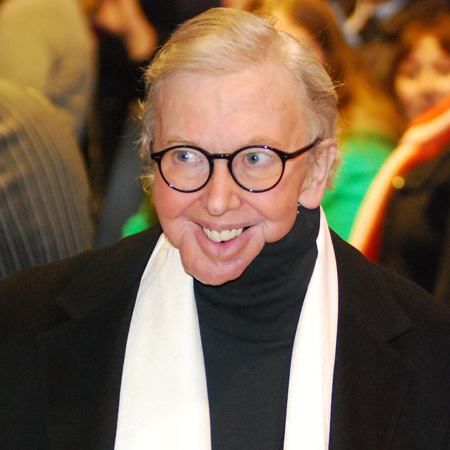Roger Ebert, one of the few truly great North American writers as well as an LGBT ally and the only movie reviewer worth a damn, passed away today at the age of 70 after a long battle with cancer.
In honour of his life and his gift for writing, I figured it would be appropriate to link to a piece he wrote in 2010 for the Chicago Sun-Times, when the state of marriage equality wasn’t quite as bright and the number of visibly out people in the spotlight was drastically lower than it is today. It’s a long read, but if you have the time, it’s worth the effort.
In the years since then I’ve known a fair share of gay couples who seemed as established and content as other couples, some more some less. In a society that was slowly outgrowing the traditions of patriarchy and matriarchy, they’d made a lateral move into humanarchy. The idea of them being joined in a civil union was a no-brainer. They’d cast their lot together, shared their duties, had an implicit agreement to stand by each other, and certainly deserved to have their relationship recognized by the state if only for reasons of ownership and inheritance. Everyone had heard of couples who’d been together for years, only for one to be banished from a deathbed by the other’s family. That was cruel.
AdvertisementI interviewed a lot of show business people, and many of them were gay. Despite my mother’s theory, I didn’t always catch on. Rock Hudson’s homosexuality must have been an open secret to all of Hollywood and half of America, but not to me. I interviewed Jodie Foster when she was 12, and she came by herself to lunch at the Old World Restaurant on Sunset, no mother, no press agent. She was mature and confident. She was a charming girl, as anyone who has seen “Freaky Friday” will testify. Did I think then that she was gay? Certainly not. Did she? When it became generally known many years later, I can’t say I was surprised. But she made it her own business, and in interviews I make it a practice to never discuss personal matters unless the subject brings it up. A lot of them do. At the end of the day, you get better interviews if you’re a sympathetic listener than an attorney for the prosecution.
Rest in peace, Ebert. The world will miss your humour, passion and your glorious thumbs.

 Why you can trust Xtra
Why you can trust Xtra


